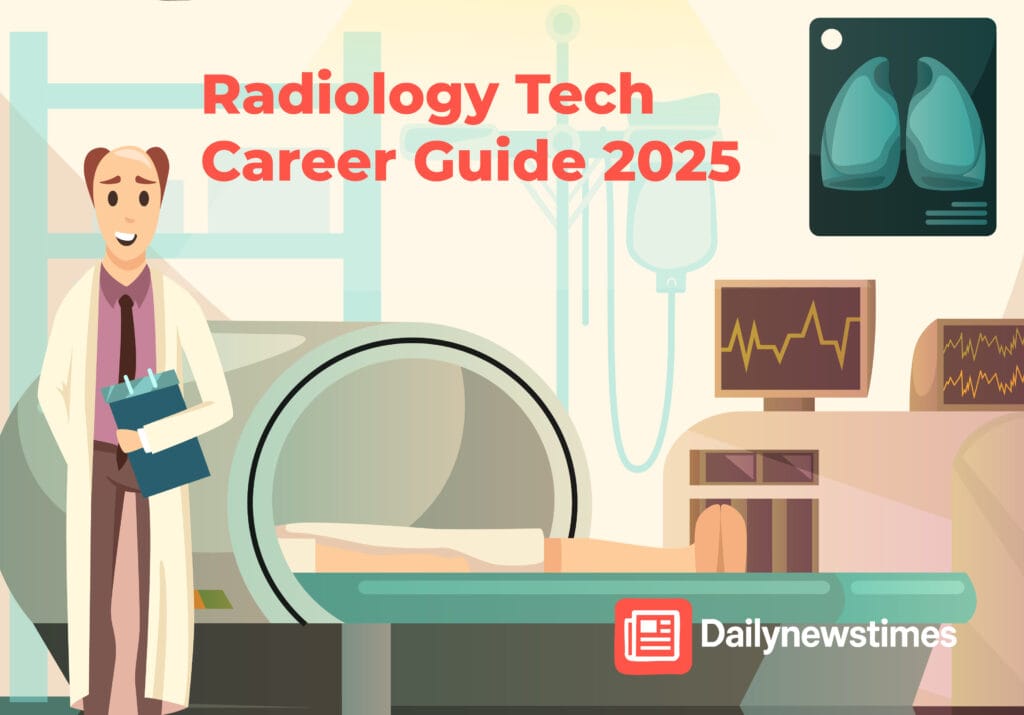If you’ve ever broken a bone (ouch 😬) or had a strange pain that just wouldn’t go away, chances are a radiology tech helped figure out what was goin’ on inside. These pros work behind the scenes with powerful machines like X-rays, CT scanners, and MRIs, makin’ sure doctors get the right images to make good calls.
Now, this job’s not just pushin’ buttons — it’s technical, patient-focused, and sometimes pretty stressful. But, it’s also one of those careers where you get to really help people without being stuck at a desk 9 to 5.
What Exactly Does a Radiology Tech Do?
Radiologic technologists (aka rad techs) are trained to take medical images of different parts of the body. They work closely with radiologists (the docs who read the images), but they’re the ones who actually operate the equipment.
Key responsibilities:
- Positionin’ patients (which sounds easy but ain’t always, trust me)
- Adjusting machine settings for the right image
- Protectin’ people from unnecessary radiation
- Workin’ with doctors and other healthcare staff
According to the U.S. Bureau of Labor Statistics, most of ‘em work in hospitals, but some are found in clinics or diagnostic labs. Job growth’s expected to be steady through 2032, so it’s def a solid career path.
How Do You Become a Radiology Tech?
It don’t take 8 years of med school, thankfully. Most techs get an associate degree in radiologic technology. Some schools even offer certificate programs, but a degree gives ya more job options.
💡 Pro Tip: Make sure your program is accredited by the Joint Review Committee on Education in Radiologic Technology (JRCERT).
Licensing & Certification
Most states require you to be licensed. You’ll usually take a cert exam from the ARRT (American Registry of Radiologic Technologists). It’s not easy — but def doable if you pay attention in school (and don’t fall asleep in physics like I did 😅).
Real Talk: What’s the Job Like?
Let’s keep it 💯 — it ain’t always easy. You’re dealin’ with machines that cost more than your house, patients who might be in pain or confused, and time pressure from docs who need answers fast.
But there’s also this kinda satisfaction in helpin’ figure out what’s wrong. Like, your images might help catch a cancer early or show that a kid’s arm isn’t broken after all. That stuff matters.
Case in point: One tech shared in a Radiology Today article how they discovered a spinal tumor on a routine scan. That image led to life-saving surgery. Wild.
Pros and Cons of Being a Radiology Tech
👍 Pros:
- Quick entry (2-year degree)
- Stable career with good pay
- Opportunity to move up into MRI, CT, or management
- Work that really helps folks
👎 Cons:
- Physically demanding (lots of standin’ and liftin’)
- Stressful when patients are uncooperative
- Night and weekend shifts (especially early on)
- Radiation exposure risk (though it’s well-controlled)
Radiology Tech vs. Other Medical Careers
| Career | Education | Median Salary | Work Stress | Growth |
|---|---|---|---|---|
| Radiology Tech | 2 years | ~$67,180 | Moderate | Good |
| MRI Technologist | 2 years + | ~$81,530 | Moderate | High |
| Ultrasound Tech | 2 years | ~$77,740 | Low | High |
| Nursing (RN) | 2-4 years | ~$81,220 | High | High |
(Source: BLS.gov Healthcare Data)
FAQs About Radiology Tech Careers
Q: Is being a radiology tech hard?
A: Kinda — it’s technical, but not impossible. If you’re good with people and don’t mind science, it’s pretty rewarding.
Q: Do rad techs make good money?
A: Yep! The BLS reports the median pay was around $67K in 2023. Some specialties like MRI pay even more.
Q: Can I work part-time or do travel gigs?
A: For sure. Travel rad techs are in demand and make more — but you’ll be movin’ around a lot.
Wrap-Up: Should You Go Into Radiologic Technology?
If you’re lookin’ for a hands-on career in healthcare, but you don’t wanna go all the way through med school, becoming a radiology tech could be a smart move. It’s got steady demand, decent pay, and makes a real impact.
Just be ready to learn, stay focused, and be cool under pressure. You’ll be workin’ with both people and some seriously advanced tech, so bring your A-game.

